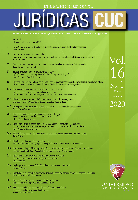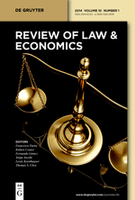
BIOTECHNOLOGY LAW REPORT
metrics 2024
Advancing Understanding of Biotech Law
Introduction
BIOTECHNOLOGY LAW REPORT, published by MARY ANN LIEBERT, INC, serves as a pivotal platform for professionals and researchers engaged in the intersection of biotechnology and law. This esteemed journal, with ISSN 0730-031X and E-ISSN 1557-8704, provides critical insights into legal issues and regulatory developments surrounding biotechnological innovations. Covering a diverse range of topics from intellectual property rights to environmental law, the journal aims to foster informed dialogue and policy advancements in a rapidly evolving field. Although it currently stands in the Q4 category for both Biotechnology and Management, Monitoring, Policy and Law, the relevance of its content persists alongside its significant contributions from industry experts and academics. Published in the United States, the journal is committed to offering comprehensive coverage of pertinent themes, despite limited open access options. As it converges its publication years towards the future, BIOTECHNOLOGY LAW REPORT remains crucial for those navigating the complexities of biotechnology legislation and its global implications.
Metrics 2024
 0.15
0.15 0.20
0.20 0.10
0.10 10
10Metrics History
Rank 2024
Scopus
IF (Web Of Science)
JCI (Web Of Science)
Quartile History
Similar Journals

Vestnik Permskogo Universiteta-Juridicheskie Nauki
Bridging National and International Legal PerspectivesVestnik Permskogo Universiteta-Juridicheskie Nauki, published by the Perm State National Research University, serves as a prominent platform for the dissemination of legal scholarship since its inception. With an Open Access policy implemented in 2009, this journal offers a wide range of legal studies, including comparative law, constitutional law, and international law, making it an essential resource for researchers, academics, and practitioners in the field. Although it is a relatively young publication, its commitment to quality and accessibility has established it as a respected voice in jurisprudence, contributing significantly to both national and international legal discourse. Researchers and students alike will find valuable insights within its pages, encompassing the latest developments and theoretical advancements within Russian and global legal systems. For those looking to stay informed on current legal issues and academic debates, this journal is a must-read.

Rabels Zeitschrift fur Auslandisches und Internationales Privatrecht
Exploring the evolution of global legal standards.Rabels Zeitschrift für Auslandisches und Internationales Privatrecht, published by MOHR SIEBECK, is a premier academic journal dedicated to the field of international and foreign private law. With its esteemed ISSN 0033-7250 and E-ISSN 1868-7059, this journal serves as a vital resource for scholars, practitioners, and students interested in the complexities of cross-border legal issues, comparative law, and the evolution of international legal standards. As a significant contributor to the discourse on private law, the journal facilitates a platform for comprehensive analysis and critical review, ensuring that contemporary legal challenges are addressed through informed scholarly engagement. Although it currently operates under a subscription model, its impact is underscored by its commitment to fostering academic dialogue and advancing legal scholarship. Located in Tübingen, Germany, this journal remains at the forefront of legal research, providing insightful and rigorous contributions to the field.

Air & Space Law
Decoding the Complexities of Air and Space RegulationsAir & Space Law is a prestigious academic journal published by Kluwer Law International, committed to advancing legal scholarship within the realm of air and space law. Serving as a critical platform for researchers, professionals, and students, this journal explores the intricate legal challenges arising from aviation and space exploration activities. With an ISSN of 0927-3379 and an E-ISSN of 1875-8339, it has established itself in the competitive legal landscape, currently holding a Q2 ranking in the Law category, positioning it within the top half of its field according to the latest Scopus metrics. Although it does not offer open access, the journal remains accessible to a wide audience via institutional subscriptions, disseminating pivotal insights that shape international policy and regulatory frameworks. The converged years from 2018 to 2024 reflect a commitment to evolving discourse, making it an invaluable resource for those engaged in the nuanced intersections of law, technology, and global governance.

Vestnik of Saint Petersburg University-Law-Vestnik Sankt-Peterburgskogo Universiteta-Pravo
Advancing Legal Knowledge in Russian JurisprudenceVestnik of Saint Petersburg University-Law, published by St Petersburg University Press, is a vital academic resource in the field of law, particularly significant within the Russian legal landscape. With an ISSN of 2074-1243 and an E-ISSN of 2587-5833, this journal serves as a platform for rigorous research, critical analysis, and scholarly discourse, contributing to the advancement of legal knowledge and practice. Although currently classified in the Q4 quartile for the year 2023 by Scopus rankings, it holds a unique position within the academic community, catering to a diverse audience of researchers, legal professionals, and students, especially those interested in the evolving nuances of law in Russia. You can explore comprehensive studies and articles that reflect the contemporary challenges and developments in law, while benefiting from the journal's focus on fostering a deep understanding of legal principles. The journal runs from 2019 to 2024, encapsulating emerging trends and insights in law that are critical for continuous learning and growth in this discipline.

University of Western Australia Law Review
Navigating the Complexities of Legal ThoughtThe University of Western Australia Law Review is a prestigious academic journal dedicated to the critical examination and exploration of legal issues in Australia and beyond. Published by the Law School of the University of Western Australia, this journal has become a significant resource for legal scholars, practitioners, and students alike, contributing to the rich discourse in the field of law. With an ISSN of 0042-0328 and a current categorization in the Q3 quartile in the field of Law as per the 2023 rankings, it stands among a cohort of respected legal publications. The journal, though not open access, facilitates a sharing of unique insights and research from 2019 to 2024, aiming to address emerging and traditional legal challenges within a global context. With a Scopus rank of #651 out of 1025 in Social Sciences Law, it holds a percentile of 36, reflecting its valuable contributions to legal scholarship. The University of Western Australia Law Review invites researchers, practitioners, and students to engage with its rich content and to contribute to the ongoing dialogue shaping the future of law.

Cadernos de Dereito Actual
Unlocking contemporary legal insights.Cadernos de Dereito Actual is a distinguished peer-reviewed journal published by the University of Santiago de Compostela, focusing on contemporary legal studies and current issues within the field of law. With its open access model instituted since 2013, the journal aims to enhance the accessibility of legal research and foster academic dialogue among researchers, professionals, and students globally. Featuring an ISSN of 2340-860X and an E-ISSN of 2386-5229, Cadernos de Dereito Actual is committed to publishing high-quality articles that contribute to the advancement of legal scholarship. Although specific metrics such as the H-index and Scopus rankings are not currently available, the journal remains a pivotal platform for innovative research and insights within the field of law, promoting rigorous academic standards and interdisciplinary approaches. For further information or to submit your research, please contact the publication service at SERVICIO DE PUBLICACIONES E INTERCAMBIO CIENTIFICO, CAMPUS UNIV SUR, SANTIAGO DE COMPOSTELA 15782, SPAIN.

Juridicas CUC
Fostering Global Conversations in Legal StudiesJuridicas CUC, published by UNIV COSTA, is a distinguished open-access journal dedicated to the field of Law, prominent since 2011. With an ISSN of 1692-3030 and an E-ISSN of 2389-7716, this journal serves as a vital resource for researchers, professionals, and students in Colombia and beyond. It holds a commendable Q2 status in Law for 2023, and its Scopus ranking places it at #425 out of 1025 in Social Sciences _ Law, reflecting its commitment to high-quality scholarship, evident in its 58th percentile. The journal aims to foster academic dialogue by publishing innovative and impactful research, contributing to the advancement of legal studies in a global context. Located in Barranquilla, Colombia, Juridicas CUC is committed to enhancing accessibility to legal research, ensuring that scholars from various backgrounds can engage with contemporary legal issues effectively.

IOWA LAW REVIEW
Shaping the future of law with thought-provoking articles.IOWA LAW REVIEW is a prestigious legal journal published by the University of Iowa College of Law, dedicated to advancing the discourse in the field of law. Since its inception, this journal has become a vital resource for legal scholars, practitioners, and students, committed to publishing rigorous and thought-provoking articles that address contemporary legal challenges. With a strong emphasis on contributions from a diverse range of legal fields, including constitutional law, criminal justice, and property law, the IOWA LAW REVIEW maintains a Q1 ranking in law, reflecting its significance and influence on legal scholarship globally. While the journal is not currently open access, it provides critical insights and perspectives that are essential for understanding the evolving landscape of law. Additionally, with its ranking of #314 out of 1025 in the Scopus database, the journal demonstrates a high impact within the legal community. Scholars and practitioners alike are encouraged to engage with its scholarly articles, as they not only highlight key legal issues but also propose innovative solutions to complex societal problems.

CATHOLIC UNIVERSITY LAW REVIEW
Exploring the Intersection of Law and Faith.CATHOLIC UNIVERSITY LAW REVIEW is a premier legal periodical published by the Catholic University of America Press, located in the heart of Washington, D.C. with a dedicated focus on the intersections of law, education, and religious studies. Since its establishment in 1973, the journal has served as a critical platform for scholarly discourse, presenting innovative legal analysis and thought-provoking research that caters to scholars, practitioners, and students alike. With an ISSN of 0008-8390, this non-open access journal holds a notable place in the academic community, reflected by its category quartiles in 2023, ranking Q4 in Education and Law, and Q3 in Religious Studies. The Catholic University Law Review is distinguished not only by its commitment to advancing legal scholarship but also by its dedication to exploring the implications of law through a distinctly Catholic lens. Its consistent output of high-quality articles contributes to ongoing debates and developments in these fields, making it an essential resource for those interested in the legal implications of contemporary issues.

Review of Law & Economics
Transforming Legal Scholarship Through Economic Insights.Review of Law & Economics, published by WALTER DE GRUYTER GMBH, serves as a pivotal platform in the intersecting realms of law and economics, with its open access policy initiated in 2016 to promote wider dissemination of research. Based in Germany, this journal aims to foster insightful discussions and innovative research that bridge the gap between legal frameworks and economic principles. With an impact factor reflected in its Q2 rank in Law and Q3 rank in Economics, Econometrics and Finance as per the 2023 category quartiles, it positions itself as a significant contributor to scholarly works in both fields. The journal's unique approach highlights a comprehensive analysis of legal issues through an economic lens, making it invaluable for researchers, professionals, and students alike. As it encompasses a broad spectrum of topics from regulatory analysis to market dynamics, the *Review of Law & Economics* continues to be a vital resource for those seeking to enhance their understanding and application of law in economic contexts, with converged years extending from 2005 to 2024.